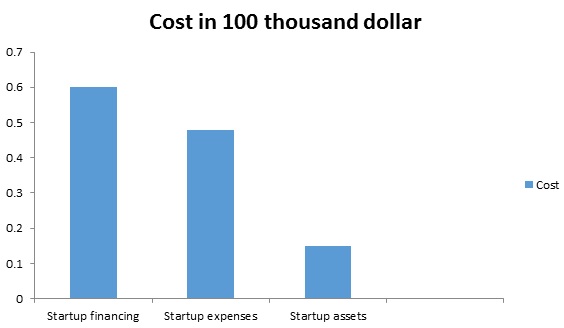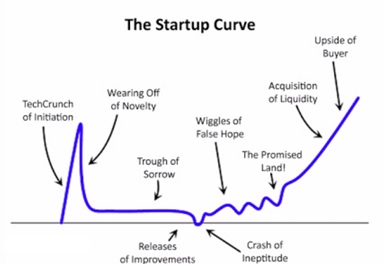- Articles ›
- Entrepreneurship ›
- Blooming Buds- The Idea & Culture of Startups Articles
Blooming Buds- The Idea & Culture of Startups
Over the past few years, “Startup” has become one of the most overly used words that gets people confused. The term became popular during the dot-com bubble, when a number of dot-com companies were founded. An institution which is designed around the idea of delivering a new product or service, in a situation of uncertainty, is termed as a start-up.
I say “Uncertainty” because a start-up is designed to confront unknown risks and take on challenges that have not been surmounted over and over by thousands of businesses. Therefore, the most important feature of a start-up has to be its idea, an idea that sets it apart from all the other businesses. Delivering a “value” that no other business offers is what catapults the business towards success and attracts people towards it.

Image: pixabay
Another thing that has received a lot of attention lately, is the start-up culture. People are looking for ways to improve the overall experience at work, and by defining start-up culture, they can commit to better supporting the work itself, improve operations, make a more valuable contribution, and gain greater personal satisfaction.
So, “Idea” and “Culture” are important features of a start-up, but the key attribute of a start-up is its ability to grow. A start-up is a company designed to scale very quickly. It is this focus on unconstrained growth which differentiates it from other small businesses.
Every aspiring entrepreneur today gets an adrenaline rush from the idea of running his/her own venture. It is the exciting era of start-ups that proposes high risks but even higher are its returns. Initial start-up hassles though may be lesser than a decade ago, but surviving the competition and keeping afloat the venture poses as the quintessential challenge. Sound mentorship, on board team of crucial talent, working out basics by building a strong concept, family support and determination can be named as the few essential ingredients to get going head front in to the start-up pool state the shining stars of India.

The above graph shows the average amount of capital needed to start a business in US. In the initial stages, the expenses are more than the assets. Also, a lot of investment might be needed depending on the service or product a business is offering.
Getting people or institutions to like and finance your idea is the basic step to be done before starting your start-up. Start-up financing is generally done by established family-owned businesses or individuals or Alumni funds in case of colleges like IIMs.
Of all that is there on the platter e-commerce wins the share of the pie chart mostly because of the low start-up costs it offers. There are numerous businesses to do online which involves selling your own product, creating a platform for third party vendors to connect to customers, drop shipping services or online information publishing portals. All of the above arenas have their own set of pros and cons which is precisely why setting up of business goals is crucial before deciding upon a model. As with the initiation of any business here too preliminary market research phase is of upmost importance as it recognizes target markets! This is followed by the first step of brand establishment by choosing a domain name. It should effectively reflect your business and be catchy. Next rung of the ladder is opting for a web hosting company to host your e-commerce website with. Finishing steps in your layout involve website modifications, add-on features and a sign up page for a merchant account holder at an online payment window for the purpose of receiving credit card payments from your customers.
Once this is taken care of uploading product information may be one of the most daunting tasks and tagging them with search engine optimized parameters is quite time consuming. To attract new visitors a company blog section is a personal addition which is trending in recent markets. Content marketing, advertising on related websites , paying for PPC adverts, networking with store owners, video tutorials and blogs are another free way to increase sales – they are free of cost (except PPC) and just require your time !
When starting an e-commerce business it is necessary to keep in mind one does not get rich overnight. The key lies in gaining repeat customers, circulation of referrals by mouth and consistency of quality product and service delivery.
Technology and Start-ups are words often used in the same sentence. Access to internet and Smartphones has enabled the everyday man to utilise services like never before, and most start-ups take advantage of it to build their businesses around newer technologies, which also helps them solve problems. For example, Uber -the cab-hailing app uses the internet and GPS services on smartphones, to provide transportation services in 58 countries and 300 cities worldwide. This would never have been possible without such extensive use of technology. But though it often is, a start-up does not necessarily have to be tech-oriented, like “myDentist”-India’s largest chain of dental clinics.
Talking about Uber, when does a start-up stop being a start-up? Uber has an estimated valuation of $50billion. It has received funding from the likes of Google Ventures and Goldman Sacchs. Uber will reportedly generate a revenue of $10billion by the end of 2015. Is it still a start-ups? There is no real answer to this, but practically, if a company is generating multimillion dollar profits, and are a good seven years in the business, they should graduate from the term “Start-up”. On the other hand, if a company is on the downward slope of lifecycle, and cannot prove to be self-sustaining and scalable, it too stops being a start-up.

The above diagram shows a start-up curve. Not all start-ups have to pass through these phases. But most of the stages are experienced by all the start-ups.
Hence, we can see that the most important features of a Start-up are Innovative Value Addition Ideas, Passionate Work Culture, Ability to grow and sustain itself, and Proving to the world, that you can’t do what you intended to do, like Uber, or Flipkart, or Ola, or a thousand other hot start-ups that have done things differently and survived.
This article has been authored by Apurva Chandravadan from SIMSR
Views expressed in the article are personal. The articles are for educational & academic purpose only, and have been uploaded by the MBA Skool Team.
If you are interested in writing articles for us, Submit Here
Share this Page on:
What is MBA Skool?About Us
MBA Skool is a Knowledge Resource for Management Students, Aspirants & Professionals.
Business Courses
Quizzes & Skills
Quizzes test your expertise in business and Skill tests evaluate your management traits
All Business Sections
Write for Us